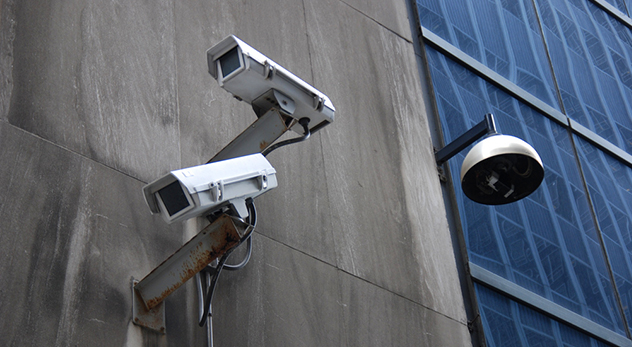
The NSA has been extensively surveilling American citizens. How should Christians respond? – Image courtesy of Jonathan McIntosh (http://bit.ly/17Thgh9)
Apparently anything goes in the “war on terror”—even spying on your own citizens.
That’s the message Americans have gotten from their government over the last decade, and it has only been reinforced by the brewing National Security Administration (NSA) surveillance scandal. Thanks to information leaked by NSA contractor Edward Snowden—a man who proves that one can be both adored and despised at the same time—we now know details of massive telephone and Internet surveillance programs enacted by America against its own citizens. According to this information, your recent Google searches, cell phone conversations, and even personal emails may have been viewed or recorded by government intelligence agencies.
No wonder the Obama Administration is getting fileted and served up with a side of tartar sauce.
But the President is not solely to blame for the Orwellian reality we’re now facing. It is, in part, the Bush Administration’s policies come to roost. Legal cover for these actions has been provided by the Foreign Intelligence Surveillance Act (FISA), which President Bush expanded with an “Authorization” to allow NSA to intercept Americans’ communications, and the Patriot Act of 2001. The super-secret $1.7 billion NSA data collection center in Utah, where much of this intelligence gathering has occurred, is the “realization of the ‘total information awareness’ program created during the first term of the Bush administration.”
Of course, few people argue that surveillance should never be allowed in a world as dangerous as ours. But what we’re seeing now is a government with carte blanche power to infringe on individual freedoms with almost no restraint. Out of some 8,600 invasive search requests submitted to the FISA court, only two have been denied.
Americans are justified to be outraged as such power run amok. And the Christians among them, even more so.
Growing up, Americans are taught that we live in the cradle of liberty and democracy. But according to NSA documents, it turns out that America may be one of the most surveilled countries in the world. This rightfully offends our American sensibilities because the impulse of our republic is to provide the most freedom possible for those who call our country home. It is difficult to engage in “life, liberty, and the pursuit of happiness” when you’re always looking over your shoulder to see if Big Brother is spying on you.
American Christians have even more reasons to oppose the surveillance state. At the core of Christian theology is an affirmation of human dignity. Every human—regardless of race, gender, country of origin, religion, or anything other marker—is made in the image of God and is the object of that God’s love. Human dignity is a permanent and ineradicable endowment of God to every person.
As Timothy George, Dean of Beeson Divinity, argues, “Persons of faith should be deeply concerned about the current surveillance flap not because privacy is an absolute end in itself but rather because it points to and safeguards something else even more basic and fundamental, namely, human dignity.”
His view is echoed by the Roman Catholic Declaration on Religious Freedom, which rightly states that human dignity requires that people “should act on their own judgment, enjoying and making use of a responsible freedom, not driven by coercion but motivated by sense of duty.”
Infringing on someone’s privacy without just cause robs them of divinely-bestowed dignity.
Additionally, the surveillance state trusts government too much. Christians believe that humans are utterly depraved and especially dangerous when in possession of unchecked power. Therefore, justice can increase only when power is held in check. As Gary Haugen, President of International Justice Mission writes, “[governmental] power must be limited by clear boundaries, and individuals exercising such power must be transparently accountable.”
Christians know that nothing can ultimately be hidden. In one sense, there is no ultimate privacy if an all-knowing God exists. As Paul Tillich says, “We are always held and comprehended by something that is greater than we are, that has a claim upon us.” But for Christians, only one entity should have and can be trusted with unlimited surveillance: God, not government.
“Only God is omniscient. To God alone are we to be a completely open book,” George writes, “To God, and only to God, should we say—or need to say—‘You know when I leave and when I get back; I am never out of your sight. I look behind me and you are there, then up ahead and you are there, too…is there any place I can go to be out of your sight?’”
Christians should desire and help create a society where the tendency of citizens is to look up, not over their shoulders.





